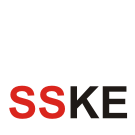From SSKE
(Difference between revisions)
Adminsske (Talk | contribs)
(Created page with "== [http://sske.cloud.upb.ro/wiki/index.php/FEUP_IET_Innovation_and_Technological_Entrepreneurship Innovation and Technological Entrepreneurship Master Program] == == Creativity...")
Newer edit →
(Created page with "== [http://sske.cloud.upb.ro/wiki/index.php/FEUP_IET_Innovation_and_Technological_Entrepreneurship Innovation and Technological Entrepreneurship Master Program] == == Creativity...")
Newer edit →
Revision as of 08:46, 18 May 2012
Contents |
Innovation and Technological Entrepreneurship Master Program
Creativity Course
Objectives, Skills and Learning Outcomes
Provide the students with the abilities to
- understand the complexity of the creative capacity of a system,
- identify the cognitive abilities and behavior that enable the development of innovative proposals.
- understand the mechanisms and the different phases of the creative process.
- use the systematic heuristic tools with consciousness and flexibility : techniques for problem exploration, methods for idea generation and evaluation techniques.
- participate actively in a creative group.
Program
1. The concept of creativity
- The notion of 'creativity': about terminology and myths.
- Creativity in the perspective of humanistic epistemology: Theories about creative thinking; Parameter of measure of creative thinking; Mental blocks and the importance of perception.
- Creativity in the perspective of Natural Science: creativity as a systemic capacity; the concept of 'self-organisation' and the importance of chance.
2. The creative process
- Basic mechanisms and phases.
- Individual process versus team work
- The CPS model - Creative Problem Solving
- The creative process in the systemic perspective
3. The systematic heuristic of the creative process
- Rules that promote creativity.
- Methods and techniques that stimulate creative thinking: The principals; An overview.
- Techniques of problem exploration: The 'Redefinition of the Problem'; The 'Mind Map'; The 'Functional Analysis'; The 'Morphological Box'.
- Methods of Idea Generation: 'Brainstorming' and the derivatives; 'Synectics' and Analogies; 'Forced Relationship'.
- Evaluation techniques: Intuitive techniques; Matrixes



